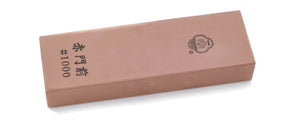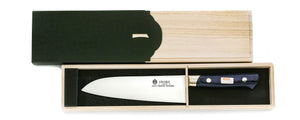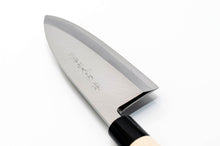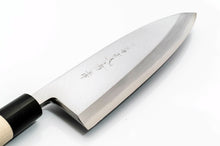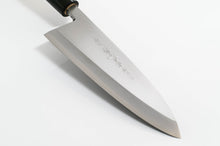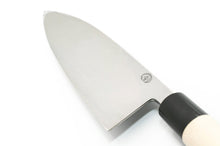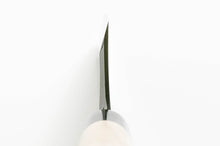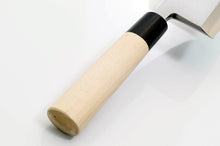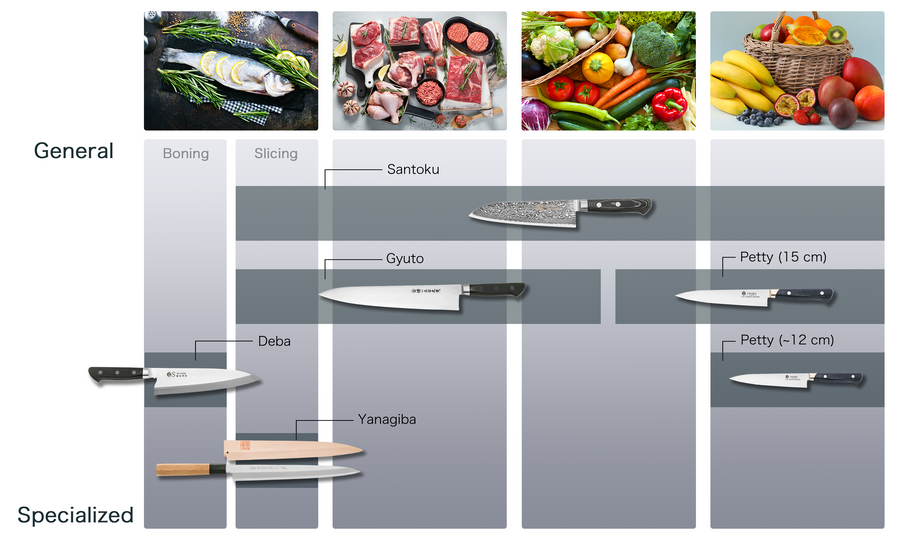
Kasumi Series
White Steel #2 knives are both sharp and easy to sharpen, making them a popular choice amongst chefs in the world of Japanese cuisine. These advantages, on top of a reasonable price, make our Kasumi Series a popular first choice for chefs of Japanese cuisine and for those who seek a better knife for use in the home.
| Product number | Actual Blade Length (mm) | Full Length (mm) | Total Weight (g) |
|---|---|---|---|
| 1d9-105 | 105 | 220 | 120 |
| 1d9-120 | 120 | 245 | 155 |
| 1d9-135 | 135 | 265 | 180 |
| 1d9-150 | 150 | 285 | 230 |
| 1d9-165 | 165 | 310 | 280 |
| 1d9-180 | 180 | 330 | 345 |
| 1d9-195 | 195 | 350 | 420 |
| 1d9-210 | 210 | 365 | 470 |
| 1d9-225 | 225 | 390 | 550 |
| 1d9-240 | 240 | 415 | 575 |
| Blade | Material Name | Handle |
|---|---|---|

Single Edged |
White Steel #2 | Magnolia round handle with buffalo horn bolster |

Deba
Deba knives are often used to fillet fish. The blade is the heaviest of all Japanese knives and is capable of chopping through fish bones and heads easily.Professionals use a 210 mm type to cut Sea Bream and Yellow tail and a 150 mm type to cut small fish such as horse mackerel. For home use, a 150 mm knife is often used.
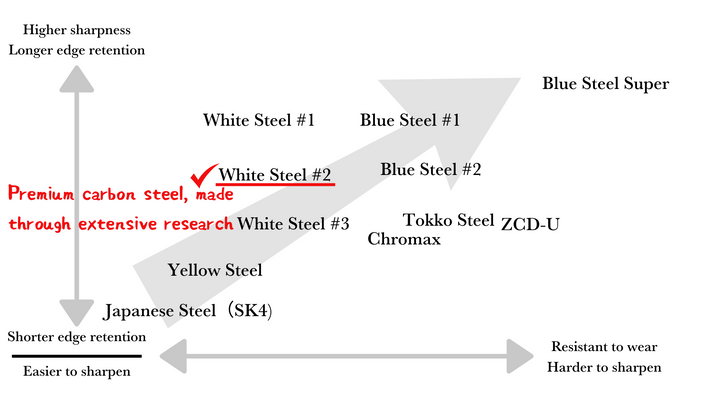
White Steel #2
A highly pure carbon steel, being easy to sharpen while staying cost-effective. Highly recommended as the best steel for your first professional quality knife.
Carbon Steel
White Steel #2 is the benchmark carbon steel for Japanese kitchen knives. White Steel #2 knives are widely used by chefs who specialise in Japanese cuisine, more so than other carbon steels. This steel has very few impurities, making the knife both easy to sharpen and less expensive due to the non-inclusion of rare metals.
*NOTE: Carbon Steel is susceptible to rust if it is not properly cared for. Please clean and dry the blade regularly during use and after use.
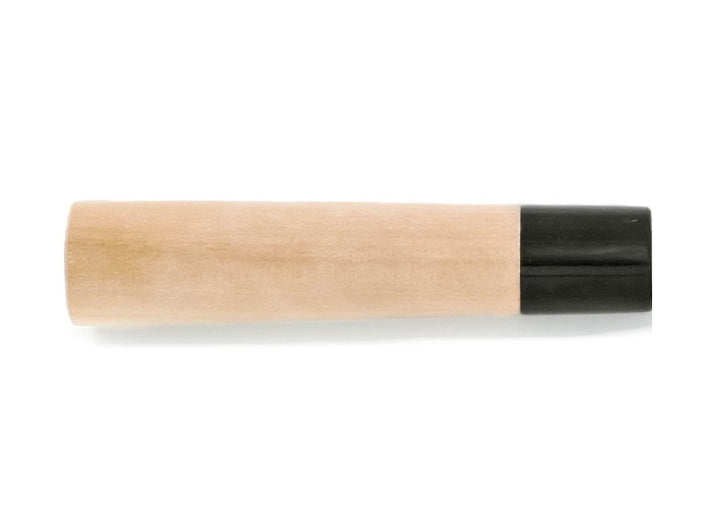
Magnolia Round Handle
Handles made from natural magnolia wood are comfortable to hold. A bolster made from ethically sourced buffalo horn is attached to the handle, then the handle is polished until there is no height gap between the bolster and wood. Over time as the handle ages, the unique grain in magnolia wood further contours this grip to your hand as you continue to use it.
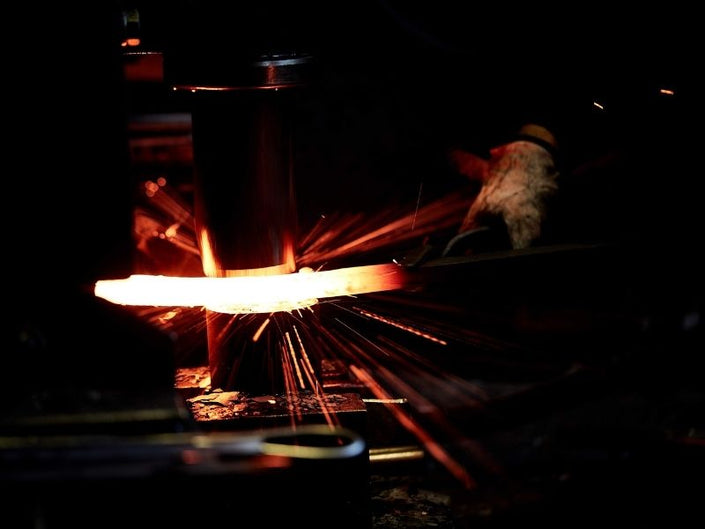
Forge Welded
Forge Welded knives undergo a forging process where steel is heated to high temperatures and then shaped with a hammer. This carefully done process changes the internal structure of the steel, producing a blade with superior hardness levels. Highly skilled craftspeople forge, quench, and create the knife's cutting edge by hand, resulting in a sharp blade with long edge retention.

Optional Engraving
Optional Engraving Service
Sakai Ichimonji provides complimentary engraving using either Japanese Kanji or English Alphabet. Please specify your preference. For details, please visit here
A knife store that has supported the history of knives and food culture in Japan.
It has been 600 years since the birth of swordmaking in the Sakai region of Japan. Sakai Ichimonji Mitsuhide's and it's craftsmen continue to build on that legacy by producing the finest blades in Japan.
This is where the culture of completing a dish of sashimi by "just cutting" and the culture of expressing sharpness as "taste" was born.
For 70 years, we have been connecting the spirit of Sakai's craftsmen with the passion of chefs in Osaka's kitchen equipment shopping district, known as the kitchen of Japan.
We are very happy that our knives can be used by people all over the world.
Precautions
After use, wash off any dirt and wipe thoroughly with a dry cloth to remove any moisture. This product is not for use with frozen foods.This product is handmade, so each piece will be different. Please use the weight and length listed as a guide. Each material is natural and may vary in color. It is not the same as the picture.We take great care with our inventory, but in the unlikely event that we are out of stock, we will contact you by email to let you know.



























